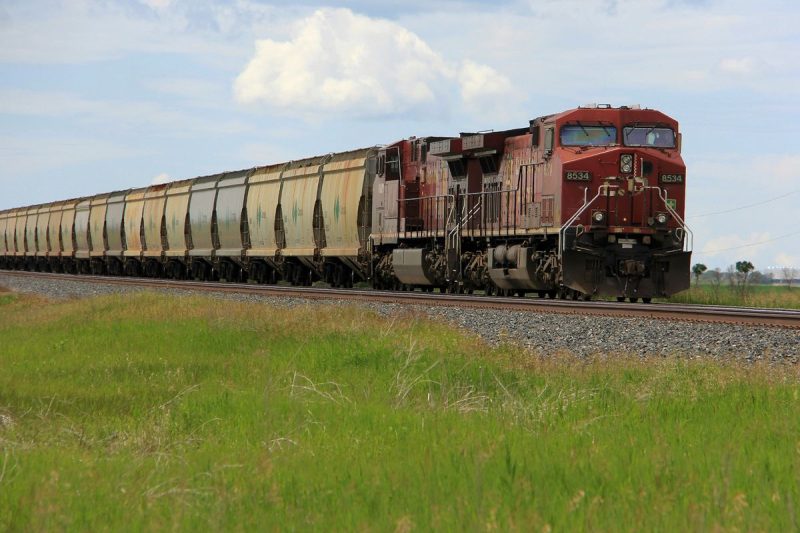Article:
Potash, Oil, and Metal Shipments Halted as Canadian Rail Workers Locked Out
The recent lockout of Canadian rail workers has caused significant disruptions in the transportation of crucial commodities such as potash, oil, and metal across the country. The halt in shipments has raised concerns about potential negative impacts on industries that rely heavily on these resources, as well as the overall economy of Canada.
Potash, an essential ingredient in fertilizers used in agriculture, is a vital resource for the Canadian economy. With shipments being halted due to the rail worker lockout, farmers and agricultural businesses are facing challenges in securing an adequate supply of potash for their operations. This disruption could potentially result in lower crop yields and higher prices for agricultural products, impacting both producers and consumers.
The halt in oil shipments is also a cause for concern, as Canada is a major producer of oil and relies on rail transportation to deliver oil to refineries and markets. The interrupted flow of oil could lead to a shortage of fuel and other oil-based products, affecting various industries and potentially leading to price increases for consumers.
Furthermore, the disruption in metal shipments is impacting industries that rely on metals such as steel, aluminum, and copper for manufacturing and construction. The halt in deliveries is causing delays in production and construction projects, as well as potential shortages of metal supplies. This could have repercussions on the overall economy, as these industries play a significant role in Canada’s GDP.
The lockout of Canadian rail workers is a major setback for businesses and industries that depend on the efficient transportation of goods. The disruption in potash, oil, and metal shipments is causing disruptions in supply chains, leading to delays and increased costs for many companies. These challenges are not only affecting businesses directly involved in these industries but also creating a ripple effect across the wider economy.
The situation highlights the importance of a reliable and efficient transportation system for the smooth functioning of the Canadian economy. The current lockout underscores the vulnerabilities in the transportation network and the potential impacts of disruptions on various sectors. It also serves as a reminder of the need for effective communication and cooperation between labor unions, businesses, and government entities to address labor disputes and prevent such disruptions in the future.
In conclusion, the halt in potash, oil, and metal shipments due to the lockout of Canadian rail workers is a cause for concern for businesses, industries, and the overall economy. The disruptions in the transportation of these crucial commodities are affecting various sectors and creating challenges for companies and consumers alike. Addressing labor disputes and ensuring the stability of the transportation network are essential for maintaining a healthy and thriving economy in Canada.
